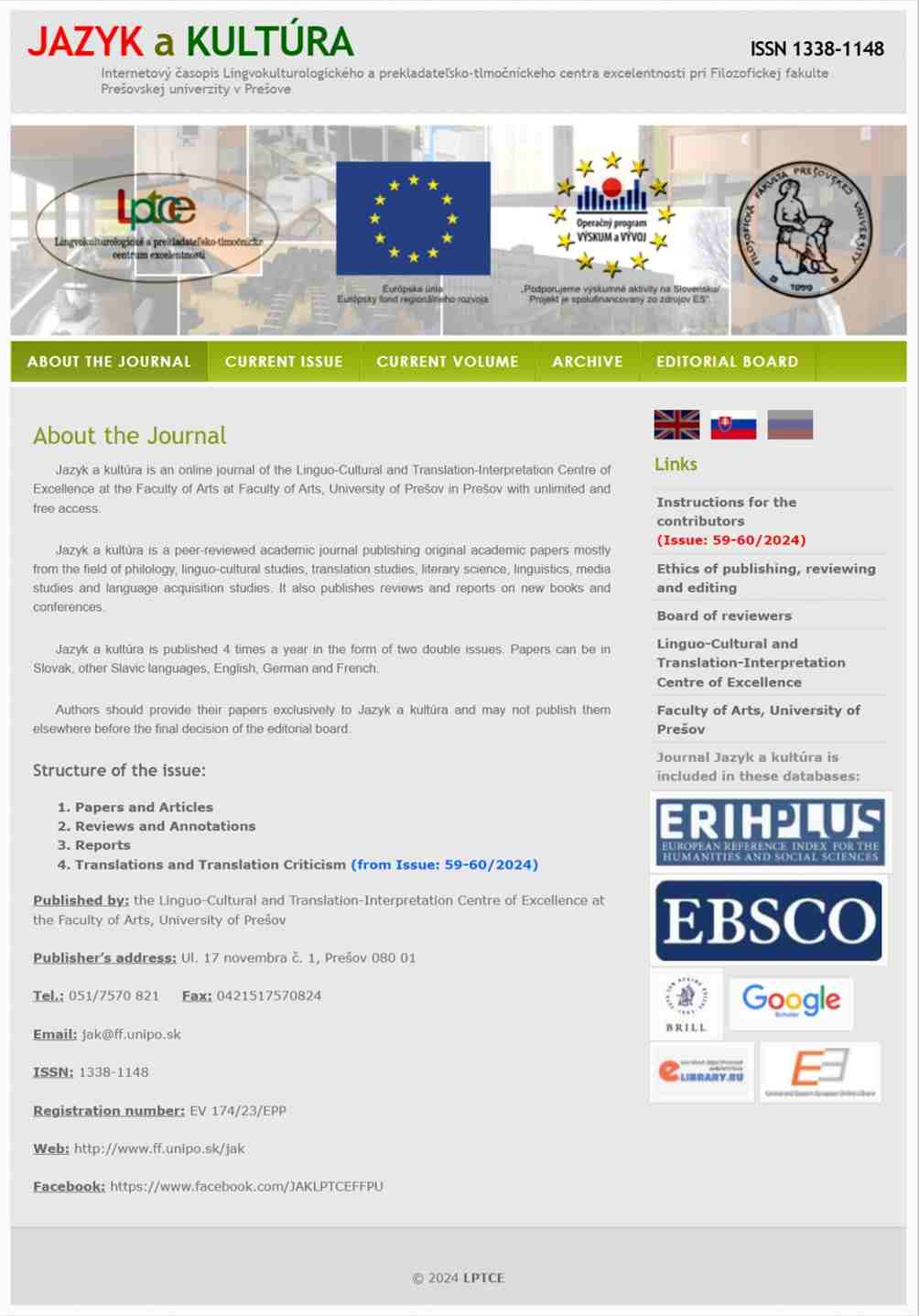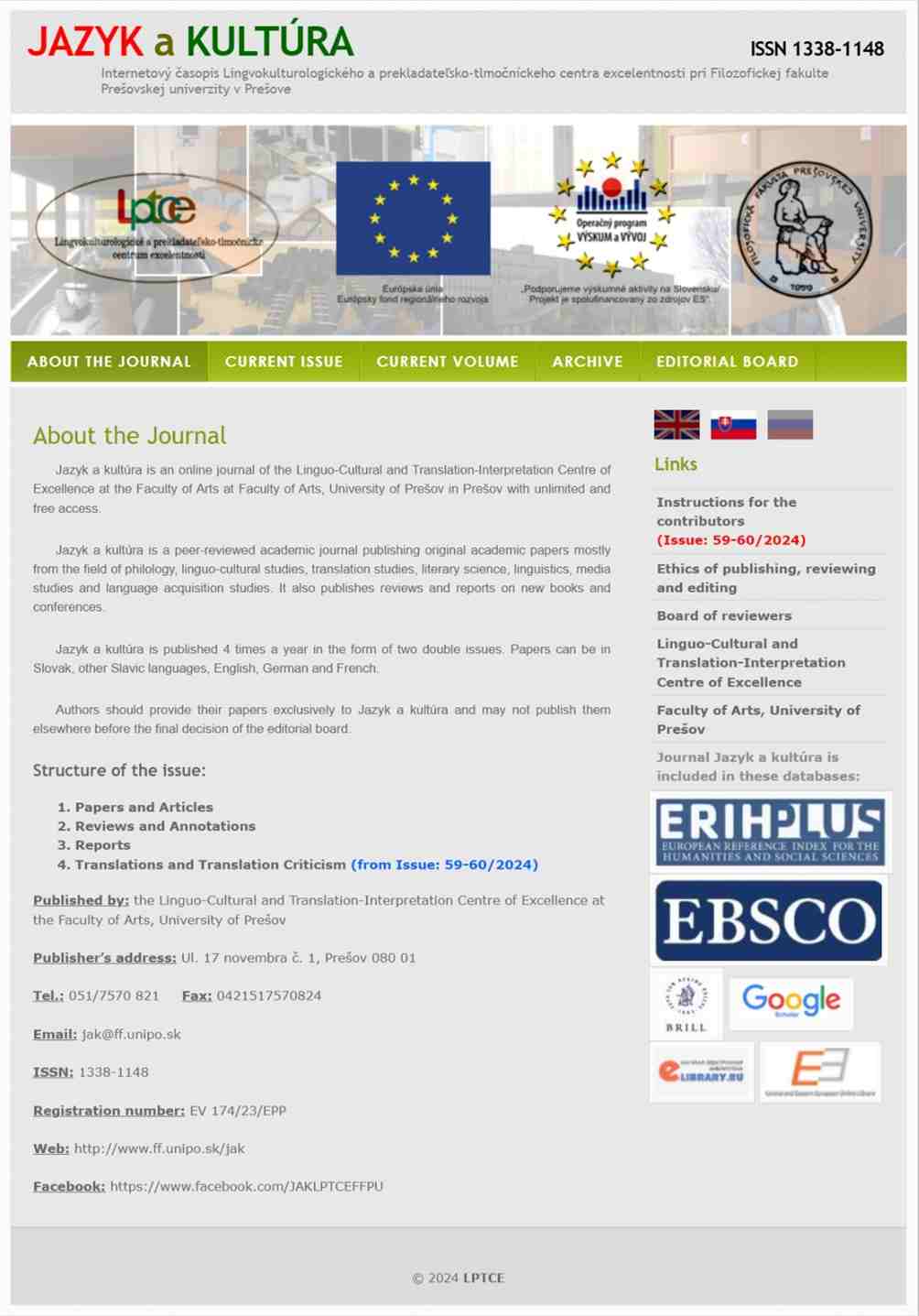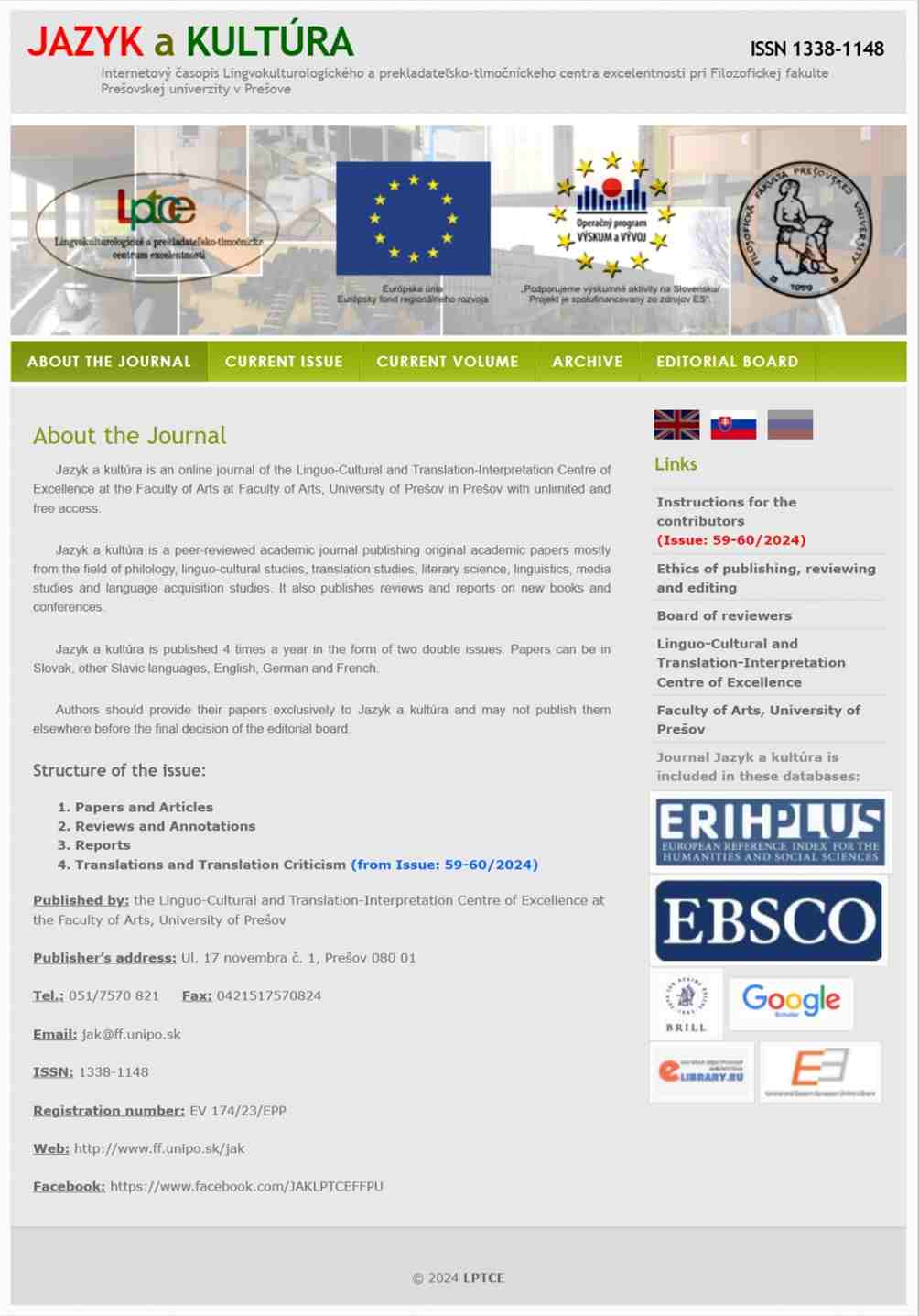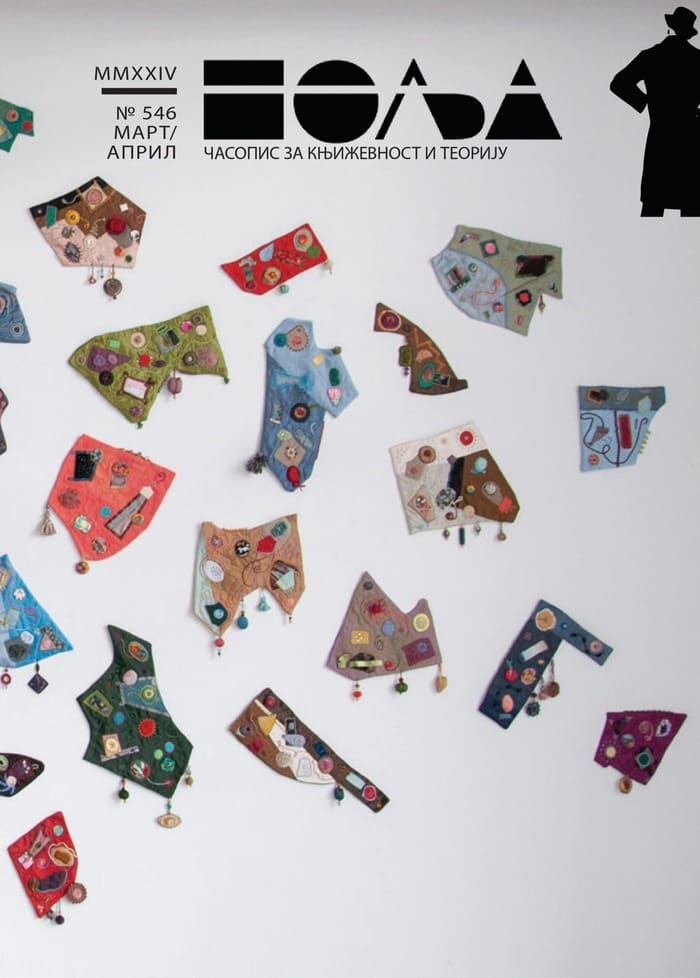
Akým jazykom hovoria charizmatici na večeroch chvál? Jazykové prostriedky charizmatického komunikačného subregistra v kontexte večera chvál
The paper focuses on the current religious (charismatic) phenomenon Worship Night as a communication event that has a multimodal nature (language code, musical code, gestural code, kinetic code). Using multiple methods, we analyzed the approximately one-hour video recordings of Worship Nights of five Slovak charismatic communities (Koinonia Sklené, Koinonia Prešov, Maranatha, Rieka života, Lamačské chvály). All observed Worship Nights contain language specifics that can be used to characterize the language of charismatic communities. Sometimes the very topic of the Worship Night, or of his central sermon (for example praise and charisma) is charismatic. Furthermore, we identified special compositional means (the motif of depth, newness and new life, change/transformation, heart, touch, Holy Spirit), syntactic means (constructions stáť vo chvále, vstúpiť do Božej prítomnosti, ty si Boh/ten ktorý..., mať požehnaný čas, bol to požehnaný čas pre XY) and morphological means (for example increased frequency of interjections, conjunction žehnať do niečoho, žehnať niečo), which we evaluate as linguistic markers of the charismatic communication sub-register.
More...


